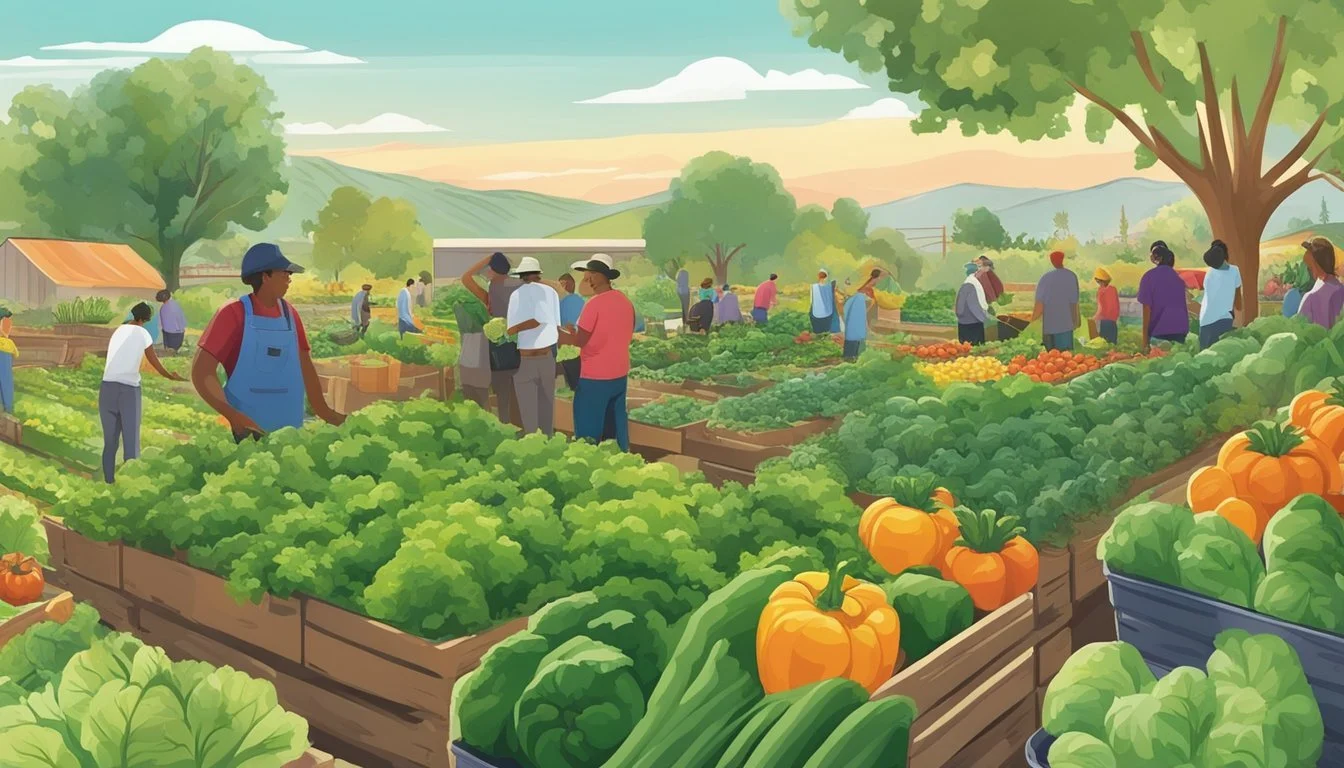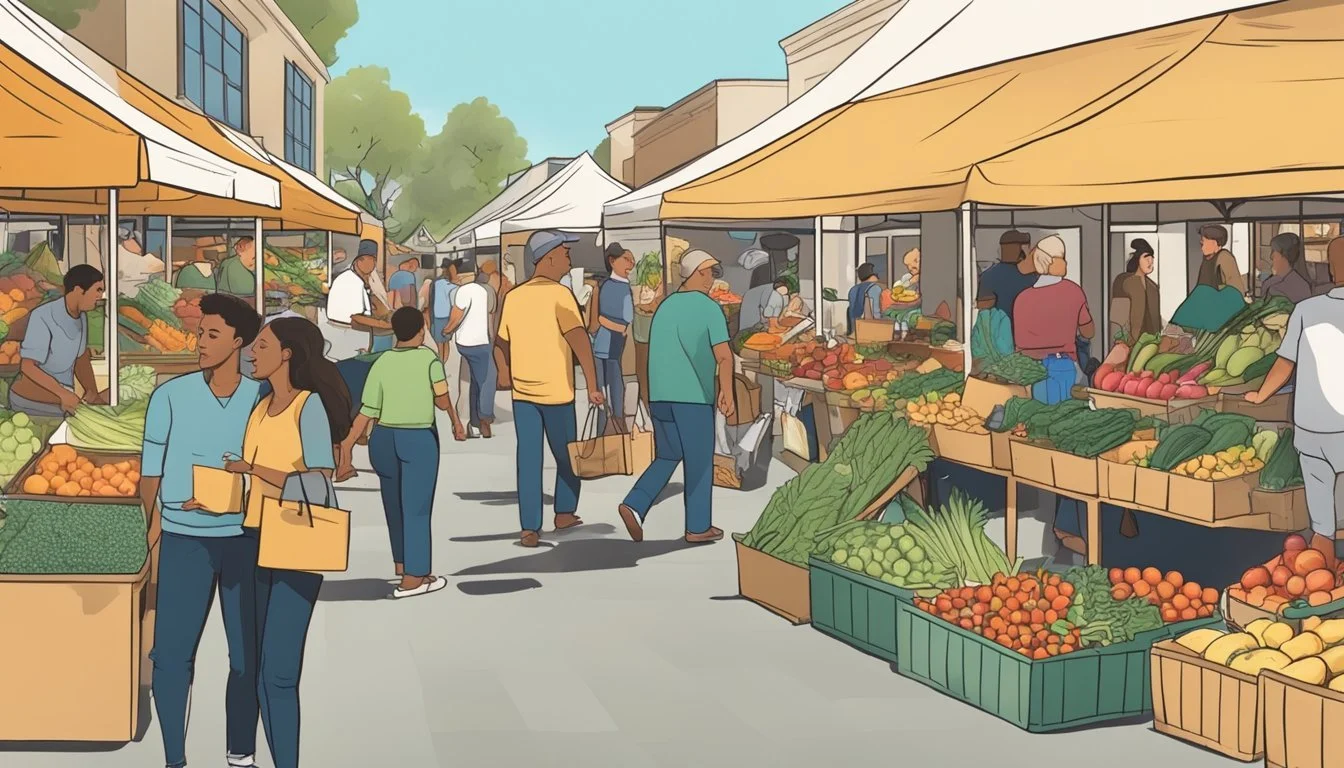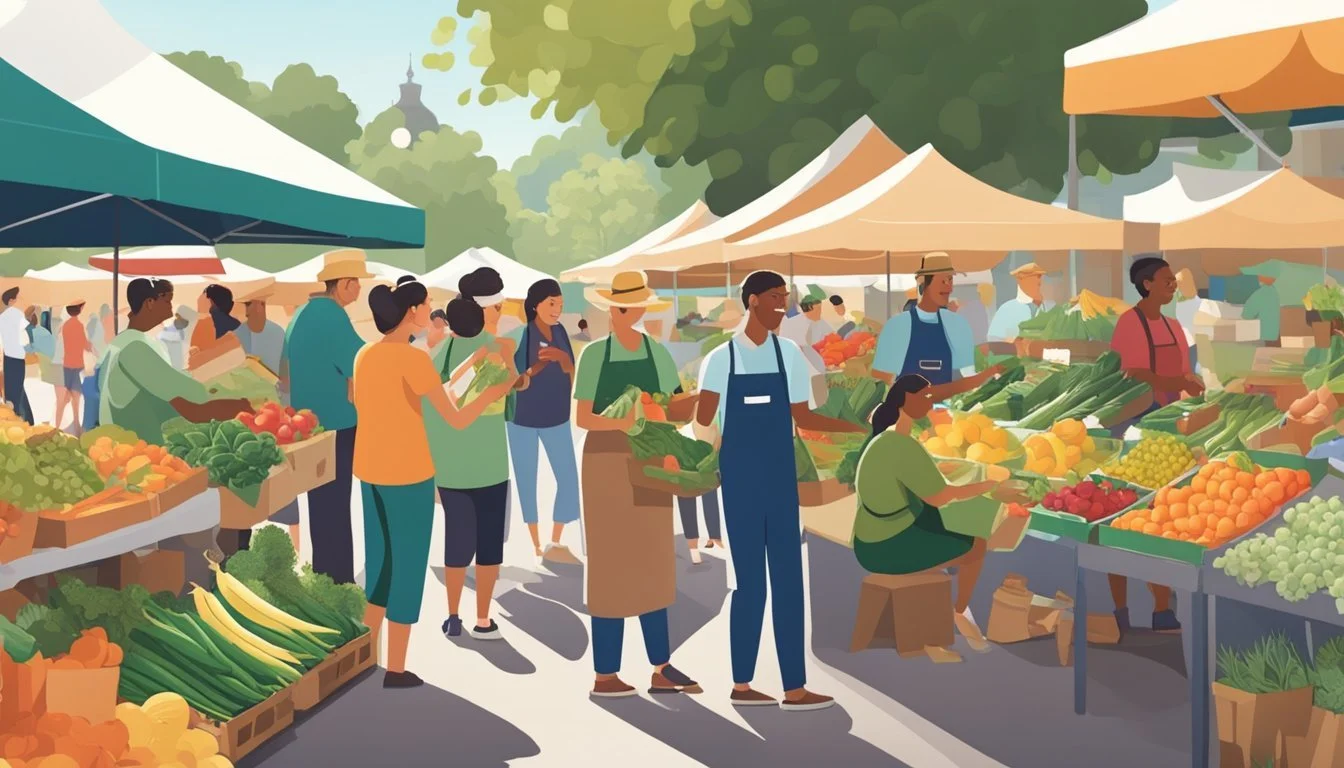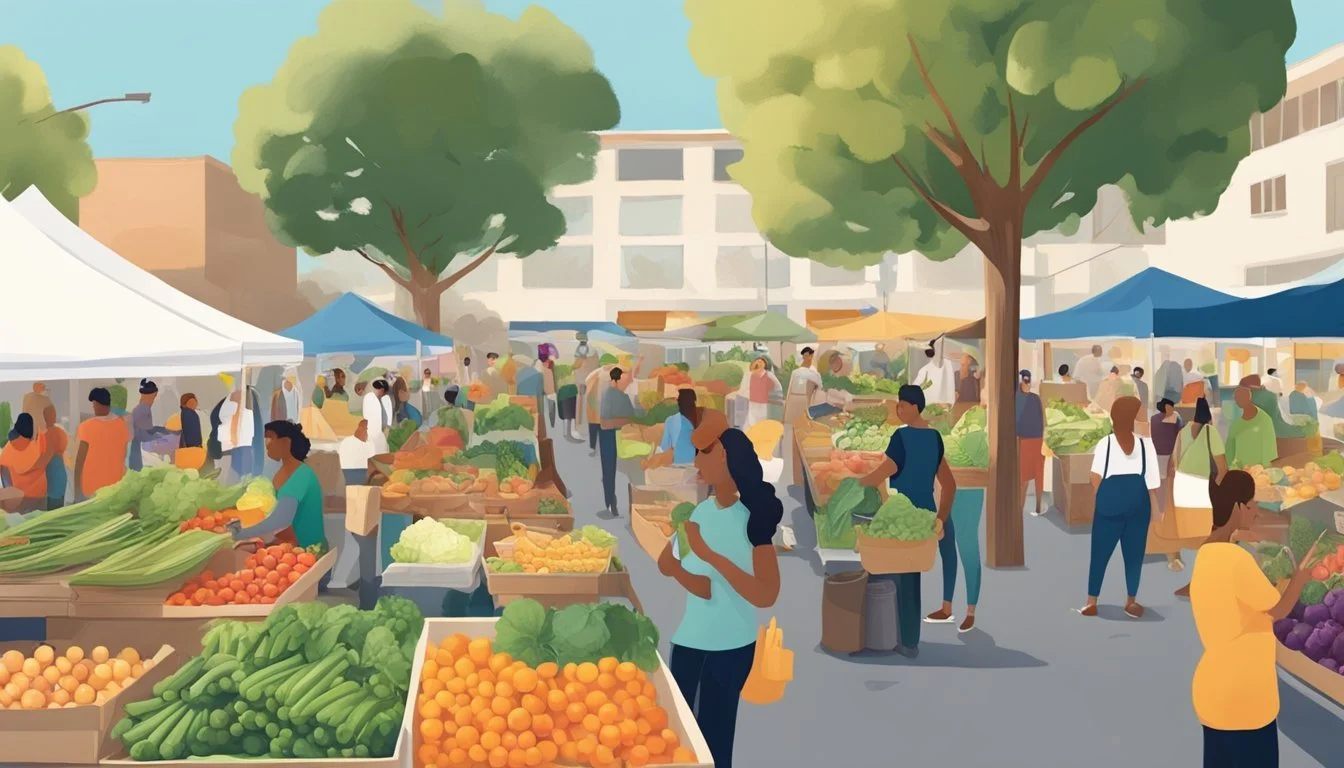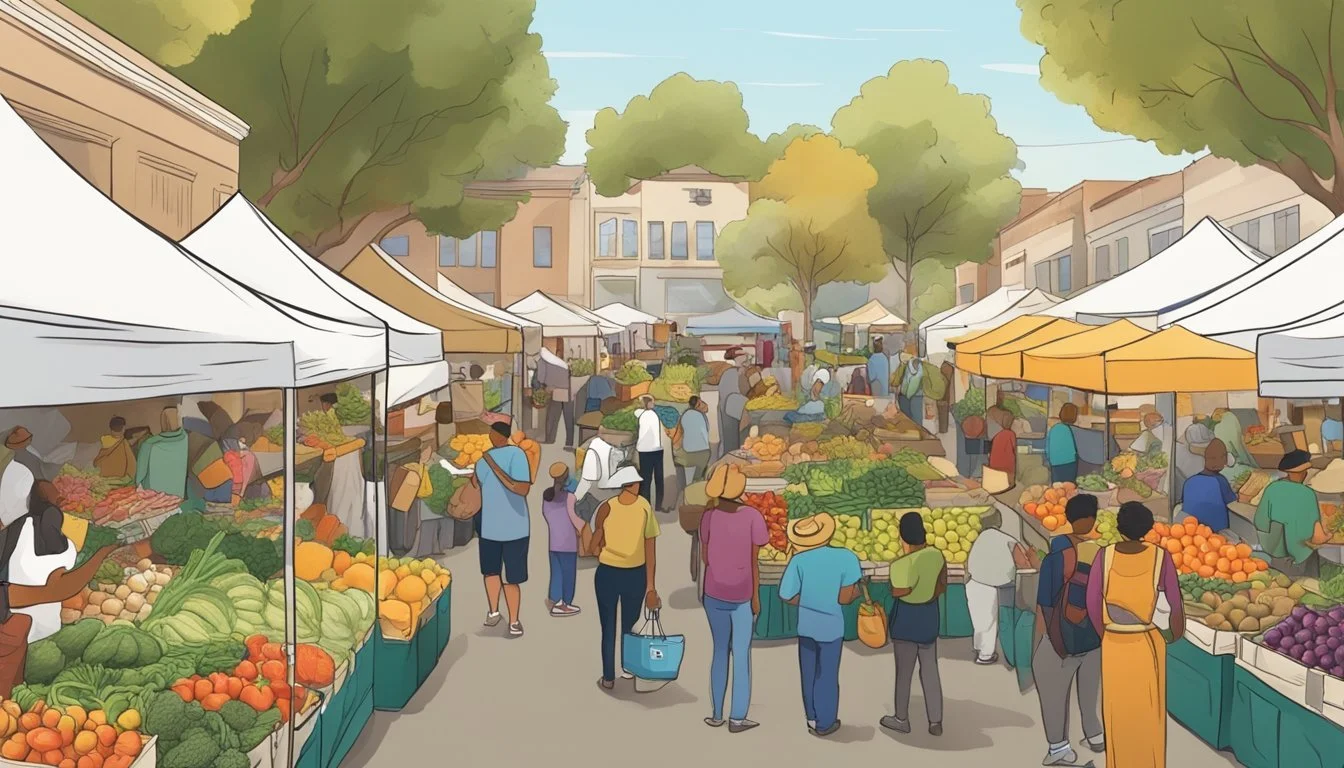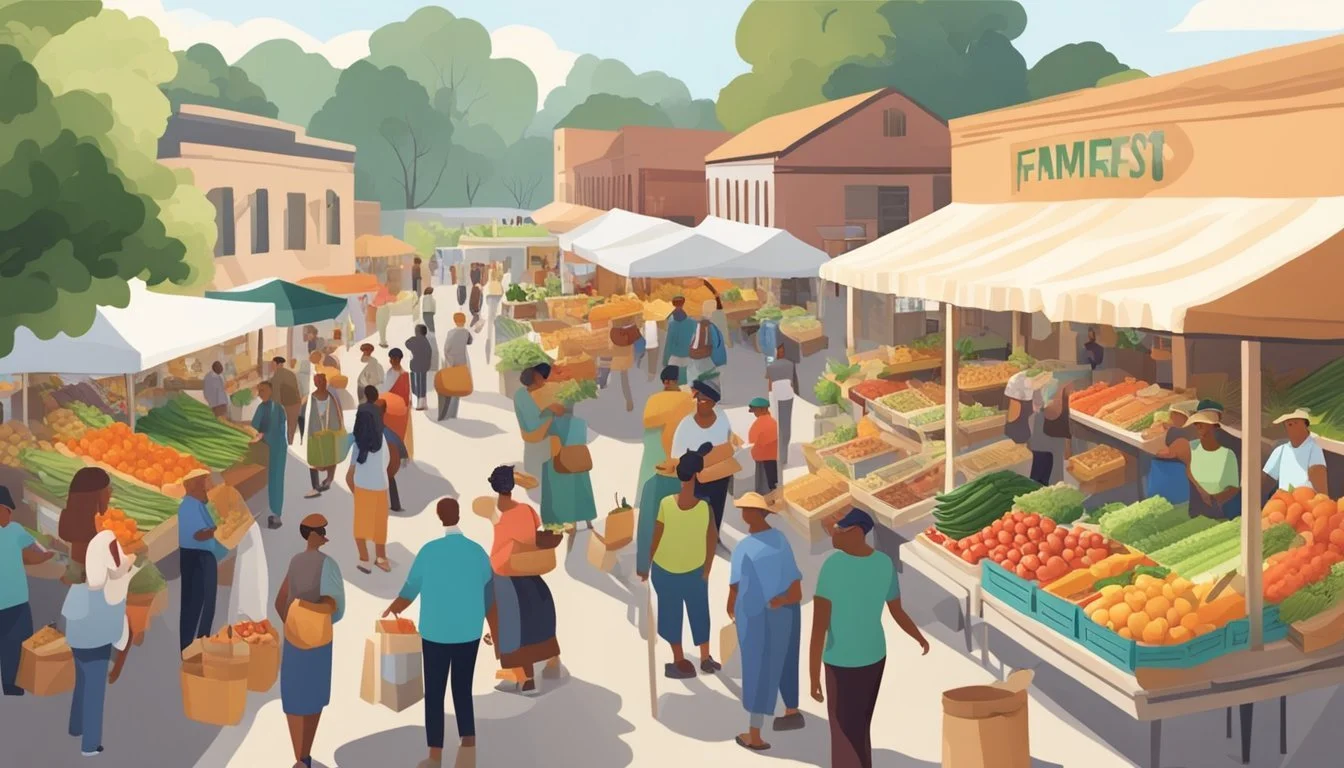Community Supported Agriculture (CSA) in Burbank, CA
A Guide to Fresh, Local Produce
Community Supported Agriculture, or CSA, is a practice that has been gaining popularity in areas such as Burbank, CA, reflecting a growing interest in sustainable agricultural practices and locally-sourced food. In a CSA, consumers purchase a share of a farm's harvest in advance, effectively becoming stakeholders in the agricultural process. This upfront investment provides the farmer with capital for the planting season and, in return, members receive a regular allotment of fresh, seasonal produce directly from the farm. This approach not only supports farmers financially but also fosters a connection between the consumers and the source of their food.
In Burbank and its surrounding regions, there are several CSA programs available, demonstrating the community's commitment to supporting local agriculture. Utilizing CSAs allows residents to access a diverse array of fresh and often organic fruits, vegetables, and other farm products. By participating in a CSA, members can expect to share both the bounties and the risks of farming, such as weather fluctuations and crop variation, creating a deeper understanding and appreciation for the agricultural process.
As the movement for local and sustainable food continues to grow, CSAs in Burbank serve as a critical link between consumers and farmers. They provide an opportunity for community members to actively engage in a system of food production that prioritizes environmental stewardship, economic viability, and the availability of nutritious, fresh produce. These programs not only contribute to the local economy but also promote a model of agriculture that can lead to healthier lifestyles and communities.
Understanding CSA
Community Supported Agriculture (CSA) represents a partnership between local farmers and community members. Participants receive fresh, often organic produce, while supporting local food systems.
CSA Fundamentals
A CSA program operates on a subscription basis, where community members purchase a share of a farm's harvest in advance. This model serves as an upfront investment in the farm, which, in turn, commits to providing a regular supply of seasonal produce to its subscriber members throughout a specified time period, typically aligning with growing seasons.
Structure: Members pay in advance, offering financial stability to farmers.
Delivery: Farms provide a box of goods regularly, ranging from a variety of vegetables to fruits and sometimes even eggs or dairy.
Local Impact: CSAs emphasize local farming and thus tend to favor organic methods, but practices vary from farm to farm.
Benefits of CSAs
CSAs yield numerous advantages to individuals and the broader community. They foster a connection to the source of one’s food, encouraging healthful eating by supplying members with a wide array of fresh and organic produce.
For Families:
Consistent access to fresh, healthy food options.
Exposure to new types of produce and ways of cooking.
Strengthens local food systems, promoting sustainability.
Encourages economic growth within local communities through direct support of farmers.
For the Environment:
Reduced carbon footprint due to minimal transportation compared to traditional retail outlets.
Organic CSAs minimize reliance on pesticides and synthetic fertilizers, conducive to environmental health.
Local CSA Programs
Community Supported Agriculture (CSA) connects residents with fresh, local produce directly from farms. Consumers in Burbank and its neighboring regions can join a CSA program to receive a regular supply of seasonal produce while supporting local farmers and sustainable agriculture practices.
Burbank and Surrounding Areas
Burbank residents have the privilege of accessing a wide range of CSA programs. These CSAs advocate for healthier eating habits and strengthen the local food economy by encouraging direct support of family farms in Southern California. For example, the South Central Farmers' Cooperative offers a CSA program that serves Burbank as well as most of Los Angeles and Kern County. They are known for their commitment to providing organic and locally-sourced produce.
Notable CSA Farms
South Central Farmers' Cooperative
Located in Sun Valley, CA and serving Burbank, the South Central Farmers' Cooperative is significant in the CSA landscape of Southern California. Their program emphasizes organic, sustainably-grown produce and demonstrates a deep commitment to community well-being.
Urban Homestead
Operating in Pasadena, Urban Homestead delivers fresh, organic produce to local community members through their CSA program. This small-scale family farm is recognized for its pioneering role in urban agriculture.
Silver Lake Farms
Situated close to Burbank in the Silver Lake area of Los Angeles, Silver Lake Farms provides a CSA program known for its assortment of flowers and organic produce, reflecting the biodiversity of Southern California.
Muir Ranch CSA
Muir Ranch, positioned in Pasadena at John Muir High School, offers a CSA that allows students to gain hands-on experience in agriculture while providing the community with organic produce. This program supports educational development and food access within the neighborhood.
Forneris Farms in the nearby Mission Hills area also deserves a mention, though it's currently unclear from provided information if it maintains an active CSA program. Residents of Burbank and neighboring cities like Escondido and Buttonwillow, CA, can benefit from these programs, which are only a few examples of the many available options in the region dedicated to fostering stronger connections between consumers and their local farmers.
CSA Membership Details
Community Supported Agriculture (CSA) programs in Burbank, CA, offer a direct way for consumers to become part of their local food system primarily through season-long memberships. These programs provide fresh, locally produced food while offering a unique opportunity to build a relationship with the farmers who grow their produce.
How to Join a CSA
To become a member of a local CSA, one must sign up for a membership, often done online through the farm’s website or at local markets. The process typically involves:
Selecting a CSA Program: Research and choose a CSA program that fits one's preferences in terms of produce variety, organic options, and delivery or pickup logistics.
Creating an Account: Fill out necessary information to create a member account, which may include contact, payment, and delivery details.
Choosing a Membership Level: Some CSAs offer different levels of membership based on the amount of produce or the number of deliveries, which dictates the subscription cost.
Payment: Complete the membership purchase by paying the subscription fee upfront. This investment supports the farm's operational costs for the upcoming season.
What to Expect as a Member
Upon joining a CSA, members can anticipate:
Regular Deliveries or Pickups: Receive a box of seasonal vegetables and fruits, often on a weekly or bi-weekly schedule during the harvest season.
Fresh, Seasonal Produce: Enjoy a variety of fresh produce that is harvested at its peak, including both familiar and new vegetables and fruits.
Community Engagement: Engage with the farm through newsletters, farm tours, and events, which foster a community around the shared goals of sustainability and food education.
Organic Options: Many CSAs focus on organic farming practices, providing members with organic produce options.
Supporting Local Farmers: Membership fees directly support farmers, allowing them to plan for the season and maintain a sustainable operation.
By signing up for a CSA membership, individuals directly contribute to the local food economy and receive fresh, wholesome produce in return.
Agricultural Practices and Produce
Community Supported Agriculture in Burbank, CA embraces advanced farming practices and places an emphasis on providing a rich diversity of produce options throughout the seasons. The initiatives prioritize organic and Non-GMO standards to ensure healthful offerings to the community.
Organic and Non-GMO Farming
Organic farming in Burbank's CSAs eliminates the use of synthetic pesticides and chemicals, relying on techniques such as green composting to enrich the soil. Producers adhere to certifiable standards that ensure organic produce is grown without genetically modified organisms (GMOs). For example, JR Organics is renowned for its certified organic farming since 1986, utilizing top-quality fertilizers like rock phosphate and worm castings.
Seasonal Produce Offerings
CSAs in Burbank offer a wide range of seasonal produce that includes staples such as corn, tomatoes, squash, and cucumbers in the summer, along with strawberries and various melon varieties. As the seasons change, offerings transition to include green beans, oranges, and grapefruit, supporting a sustainable, locally grown food system. This practice promotes sustainable agriculture while ensuring fresh, nutrient-rich, and flavorful food for the community.
Season Produce Examples Summer Corn, Tomatoes, Melons Fall Squash, Cucumbers, Beans Winter Oranges, Grapefruit
Community and Environmental Impact
The advent of Community Supported Agriculture (CSA) in Burbank brings with it marked improvements in the local community's cohesion and the environment's integrity. These impacts resonate particularly through the local economy and sustainable practices.
Economic Benefits to Local Area
Community Supported Agriculture represents a financial lifeline to local farms in Burbank. By participating in CSA programs, residents invest directly in their local economy. Funds flow back to the homegrown community co-operative endeavors, fostering a robust microeconomic climate. Data collected from similar initiatives illustrate that for every dollar spent on local food, a significant portion of that money remains within the local economy, recirculating and supporting other community-based businesses and services.
Direct impact on local economy:
Increased revenue for local farms
Financial support for the homegrown community cooperative
Sustainability and Education
Education on sustainable practices is at the heart of Burbank's CSA model. Local farmers offer invaluable lessons on compost use and worm castings as effective fertilizers, reducing reliance on chemical inputs. Such practices not only promote the health of the environment through improved soil quality but also serve as practical, hands-on education for community members. Burbank's CSA programs typically integrate sustainability into their operations, furthering research and knowledge-sharing within the community and ensuring a future where local food secures both the environment and educational enrichment.
Key components for enhanced sustainability and education:
Use of compost and worm castings to enrich soil
Boots-on-the-ground education for community members
Contribution to sustainability research
Additional CSA Services
Community Supported Agriculture (CSA) within Burbank, CA, showcases a diversity of offerings and collaborative endeavors. These offerings extend beyond traditional produce shares and contribute to the enrichment of the local food system.
Partnerships and Community Programs
CSAs have fostered partnerships with various organizations to expand their influence and service range. One significant collaboration is with Community Services Unlimited Inc. (CSU), an organization established in 1977 in South Central Los Angeles. Through this partnership, CSAs engage in community programs that bridge the gap between sustainable agriculture and urban communities. These programs frequently provide educational opportunities about nutrition and food sovereignty. Additionally, CSAs often collaborate with local food programs like the Supplemental Nutrition Assistance Program (SNAP) to provide fresh, local produce to a wider audience, ensuring that nutritious food is accessible to all economic sectors.
Specialized Products from CSA
CSAs in Burbank often offer a variety of specialized products to their members:
Herbs and Edible Flowers: Many CSAs cultivate a selection of herbs and edible flowers, providing unique flavors and garnishes for culinary enthusiasts.
Gourmet Oyster Mushrooms: Urban Homestead, for instance, offers high-quality gourmet oyster mushrooms, allowing members to enjoy the taste and nutritional benefits of these fungi.
Cut Flowers and Goats: Some CSAs integrate cut flower shares or animal husbandry into their services, featuring products like bouquet subscriptions or opportunities to interact with farm animals like goats.
By offering these specialized products, Burbank CSAs not only provide a diverse array of goods to their members but also contribute to the local economy and promote agricultural education.
Risks and Considerations
Community Supported Agriculture in Burbank, California presents an innovative model for local food systems, yet it is accompanied by inherent risks and a need for clear expectations. Participants and providers both face variables like market fluctuations and environmental factors that can impact the CSA's success.
Potential CSA Concerns
Risk and Market Variability: One fundamental risk in any agricultural venture, including CSAs, is market variability. Prices in traditional markets can fluctuate due to various reasons—economic shifts, changes in consumer preferences, and global trade dynamics. These price changes can affect the financial stability of a CSA, which normally operates with preset prices for its shares.
Research: Members and farmers should engage in ongoing research to understand the local market demand and adjust their offerings accordingly.
Crop Failure and Weather Impacts: In Burbank, as in all agricultural settings, farmers must contend with the possibility of crop failure, either from pests, disease, or extreme weather events. Sudden changes in weather, particularly in California where droughts and wildfires have become more common, pose substantial risks to CSA operations.
Quantity and Variety: CSAs work on the premise of providing a diverse array of produce to its members. However, challenges arise if a farm cannot supply the promised quantity or variety due to unforeseen circumstances like seasonal changes.
Managing Expectations
Seasonal Changes and Weather Impacts: CSA members should be informed about the implications of seasonal changes and weather impacts on farming. This understanding will aid in managing expectations regarding the variety and quantity of produce received.
Variety: Producers often promise an eclectic mix of produce. Communication regarding possible variations in this aspect is key to maintaining trust.
Quantity: Members might expect a consistent quantity of produce each week or month. Farmers should set realistic expectations based on growing seasons and potential challenges.
Producers may mitigate these risks by diversifying their crop selections, leveraging research for better market analysis, and maintaining open communication with members about potential fluctuations in the CSA offerings.
Supporting CSA Growth
The expansion of Community Supported Agriculture (CSA) in Burbank, CA, hinges on active community engagement and the innovative use of technology. These elements play a pivotal role in strengthening the bond between consumers and local farms.
Role of Customers and Community
Customers possess a significant influence on the growth of CSAs in Burbank. By choosing to purchase a share, they not only receive fresh, organic produce but also invest in the sustainability of local agriculture. Families and individuals become integral parts of the food chain through this support, reinforcing the importance of their role through consistent participation and word of mouth advocacy. The spirit of community engagement is further enhanced when customers become volunteers, fortifying CSA operations and fostering a close-knit food community.
Key Customer Contributions:
Buying shares and sustaining local agriculture
Volunteering at farms to enhance CSA operations
Spreading awareness through word of mouth
Expansion through Technology
The adoption of technology in CSAs introduces efficiency and expands their reach. Online marketplaces empowered by robust APIs create seamless connections between farmers and the community. CSA management has been streamlined through technology, enabling features like online payments, which accommodate a broader customer base including those depending on SNAP benefits. Technology integration extends to software designed for CSA, improving management tasks and offering an accessible platform for customers to engage with.
Technology Advancements in CSA:
Online marketplace platforms that connect farms to consumers
APIs that allow for scalable, efficient farm management
Online payment systems supporting inclusivity in CSA membership

